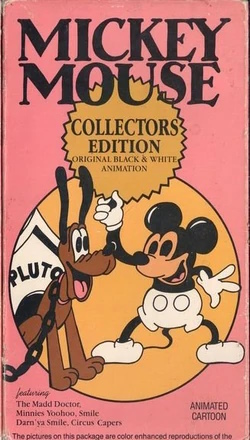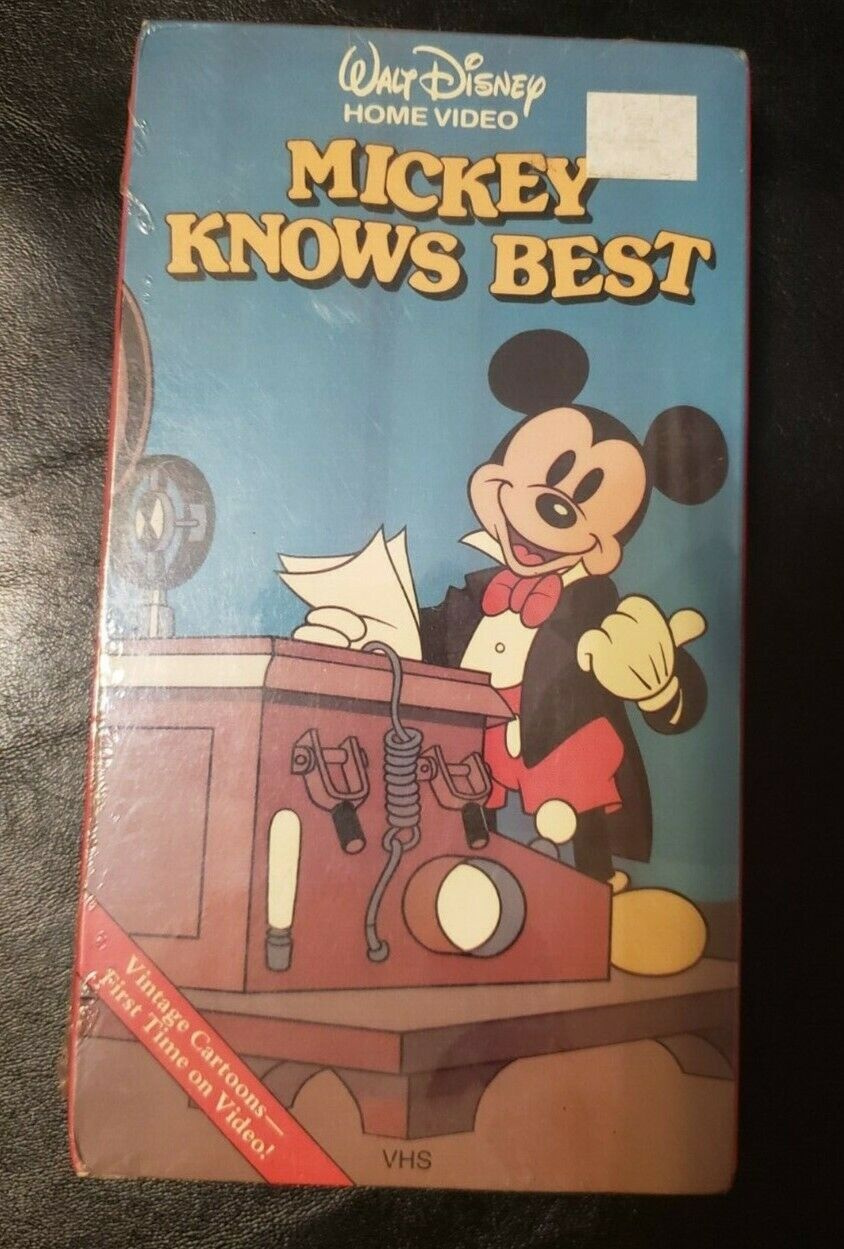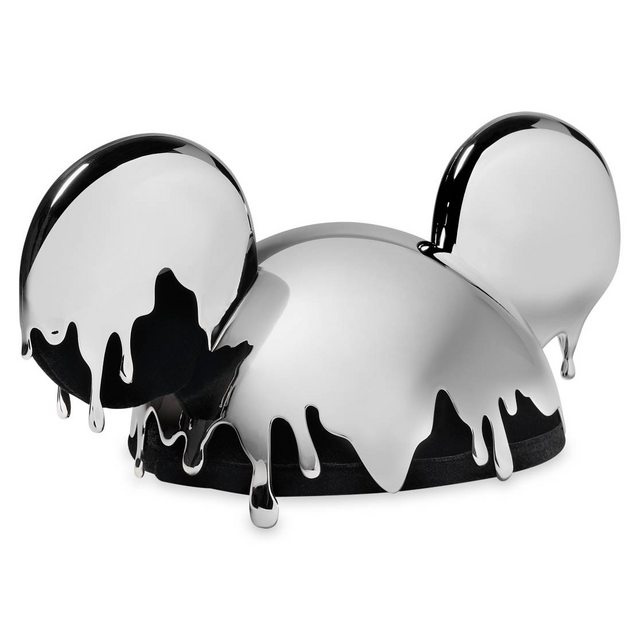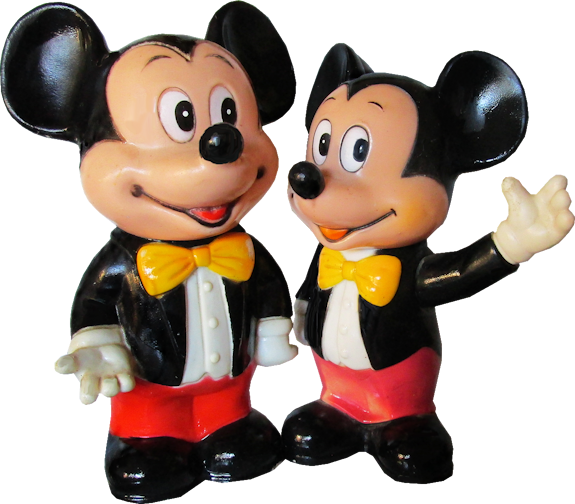 Important to know: we have only unlocked the first Mickey on the left
Important to know: we have only unlocked the first Mickey on the left
So in the Public Domain Discord I'm in, there was a rather lengthy scuffle over whether a new Disney short was solely created with the public domain in mind, because in just a couple months the beloved rat enters into the public domain. This certainly could look to an outside observer a somewhat sinister plot to keep the oldest depiction of Mickey, the one people most commonly know, out of public domain- whip up a design that's just close enough to the real thing and hope nobody notices before you start suing people.
There's a couple issues with this idea, namely that Mickey Mouse will still go into public domain regardless of this short. There are three separate iterations of Mickey Mouse that specifically become public domain in 2024 as three shorts were released in 1928- Steamboat Willie, The Gallopin' Gaucho, and arguably Plane Crazy, although it is a little more complicated on the last one. Out of all of these, Steamboat Willie is the only one that specifically seems to be referenced as it's publically the first cartoon they released, although Plane Crazy was screened earlier and debuted both Mickey and Minnie publically.
The timing is absolutely a little suspect for this cartoon, but I don't think a strong legal case can be built for it as its own iteration of Mickey Mouse, which is meant to somehow be close to the original just enough to sue other people over it? While Disney has been notoriously protective of the rat for years, this short marks the end of the current Paul Rudish series, although the specifics of whether Rudish is leaving behind the mouse altogether or if it's just specifically this iteration are unclear as of writing.

I say that because regardless of how Disney wants to make it seem, more and more versions of Mickey Mouse will go into public domain and if they wanted to make a legal case for extending it, they are kind of a little too late. While copyright has been screwy and has pulled things out of the public domain before, it's unlikely to happen again, especially with prominent lawmakers on both political spectrums not on their side.
How Disney has reacted to Winnie the Pooh going into the public domain has maybe been the most indicative of how they might react to Mickey Mouse going into the public domain. They… have been notoriously mum on it. While I see a growing anti-public domain sentiment regarding Winnie the Pooh or at least weirdly supportive of efforts to keep characters out of there, there hasn't been any sort of statement on things like
Blood and Honey or other Winnie the Pooh projects, particularly the selling of a Roblox iteration of the character by Youtooz.
They have already released a statement as well, which reads as following:
“Ever since Mickey Mouse’s first appearance in the 1928 short film ‘Steamboat Willie,’ people have associated the character with Disney’s stories, experiences and authentic products. That will not change when the copyright in the ‘Steamboat Willie’ film expires. We will, of course, continue to protect our rights in the more modern versions of Mickey Mouse and other works that remain subject to copyright, and we will work to safeguard against consumer confusion caused by unauthorized uses of Mickey and our other iconic characters.”
The bolded is where people tend to get tripped up, but it's pretty simple. While trademarks have a lot of power (and indeed there are aspects of the Steamboat Willie short that actually were trademarked) they cannot wholly stop new iterations of Mickey Mouse that aren't confused for the Disney version, which… well, let's just say there are easy ways to classify appearances by the mouse that can prevent future consumer confusion. A simple notice before any story or a very out of character version of the mouse can easily make it distinct, but also keep in mind you have the Gallopin' Gaucho and Plane Crazy versions to work with. With each passing year, more versions of Mickey Mouse will enter the public domain. This is a given.
Generally what I find that people sort of misunderstand, and what terrible Disney blogs tend to tell you, is that trademark is capable of overstepping copyright when needed. What trademarks cover are iconography and names- mostly logos and product specifics. And no, the Disney Animation logo featuring Mickey getting drawn in does not protect the short. If it did, we wouldn't even be talking about the Rudish short, because it's so clear cut, right?
I do think the response from Disney will be interesting and instructive, but they cannot keep the filthy rat out of the public domain completely. While the modern day iteration absolutely will stay "safe", it's the early 1928 appearances that will be coming to the public domain- as well as completely new takes that you will be able to own for yourself.

As a way to sort of outline what you can and can't do with Mickey Mouse, I'll help construct a helpful list.
- Don't put Mickey Mouse's name directly on the project- assume it works off "Shazam" rules, where DC cannot refer to their version of Captain Marvel as Captain Marvel on the cover of any given comic book, but can call the book "Shazam" which features Captain Marvel.
- If you are using previous iterations of Mickey Mouse as the basis for your take or using the image of the mouse in general, make sure your version is based off Steamboat Willie, The Gallopin' Gaucho, or Plane Crazy first and do not use the more modern and later takes of the character as your baseline.
- Generally you should probably study the first three shorts first to get a baseline for your version of Mickey Mouse characterization and avoid trying to do anything that specifically references later iterations of the character. This sounds complicated, but there's a lot of wiggle room with the base concept of a "wizard Mickey Mouse" even though the Fantasia and Wizards of Mickey are still under copyright.
- I would largely suggest coloring your Mickey Mouse with blatantly different colors if possible to prevent "brand confusion" even if you're using a model accurate Galloping Gaucho Mickey.
- These same rules apply to Minnie Mouse as well, although perhaps you won't have as many heat seeking missiles directed at you if you use her or Pegleg Pete, who is already partially in public domain although the Steamboat Willie iteration is arguably the foundational take that leads to modern Pete.
- Maybe even use a different name like "Michael Mouse" or "Disneystein's Monster".
I don't know how particularly litigious Disney plans to be, but I feel like with the above rules in mind you should be fine. It may not seem as freeing as it sounds because you picture the current iteration of Mickey Mouse going into public domain and that's not the case, but I'd argue the flawed, "naughty" iteration of Mickey has more charm. Eventually Mickey's brand will dilute and they will be less strict about it if we continue to use the character.
In 2024, when the ball drops, you should get working on your own iteration of Mickey Mouse. Even if you don't have the most creative vision for it, a short story, comic, or other project will help establish that Disney will not have any confusion regarding their beloved mascot rat. I would like to establish a month-long event to make as much Mickey content as possible, although who knows where I'll be in February. Maybe I could call it "Massive Mouse Mayhem"...?

Either way, I hope you all have a great time working on your own projects. Don't let fear rule your life, because the public domain belongs to all of us. We should not solely be consumers, and the attitude that we are is creative complacency.





